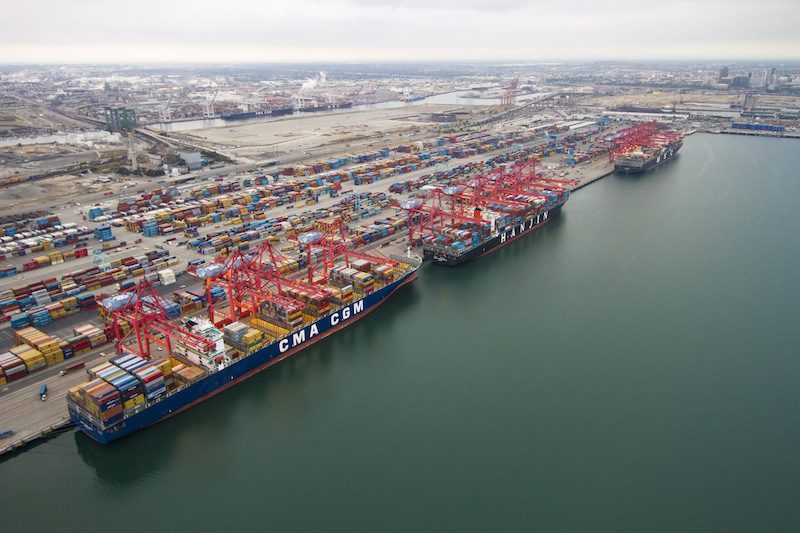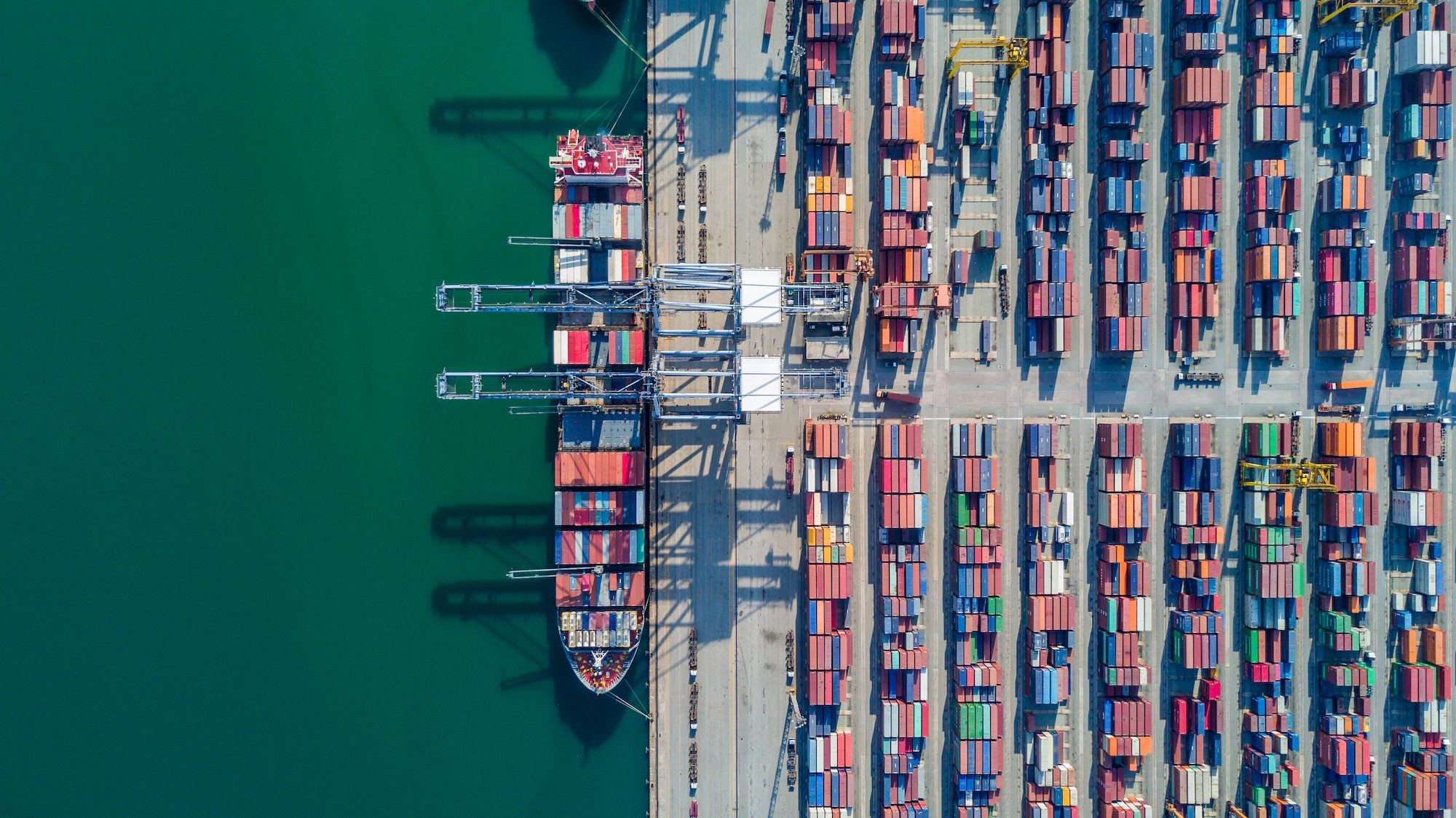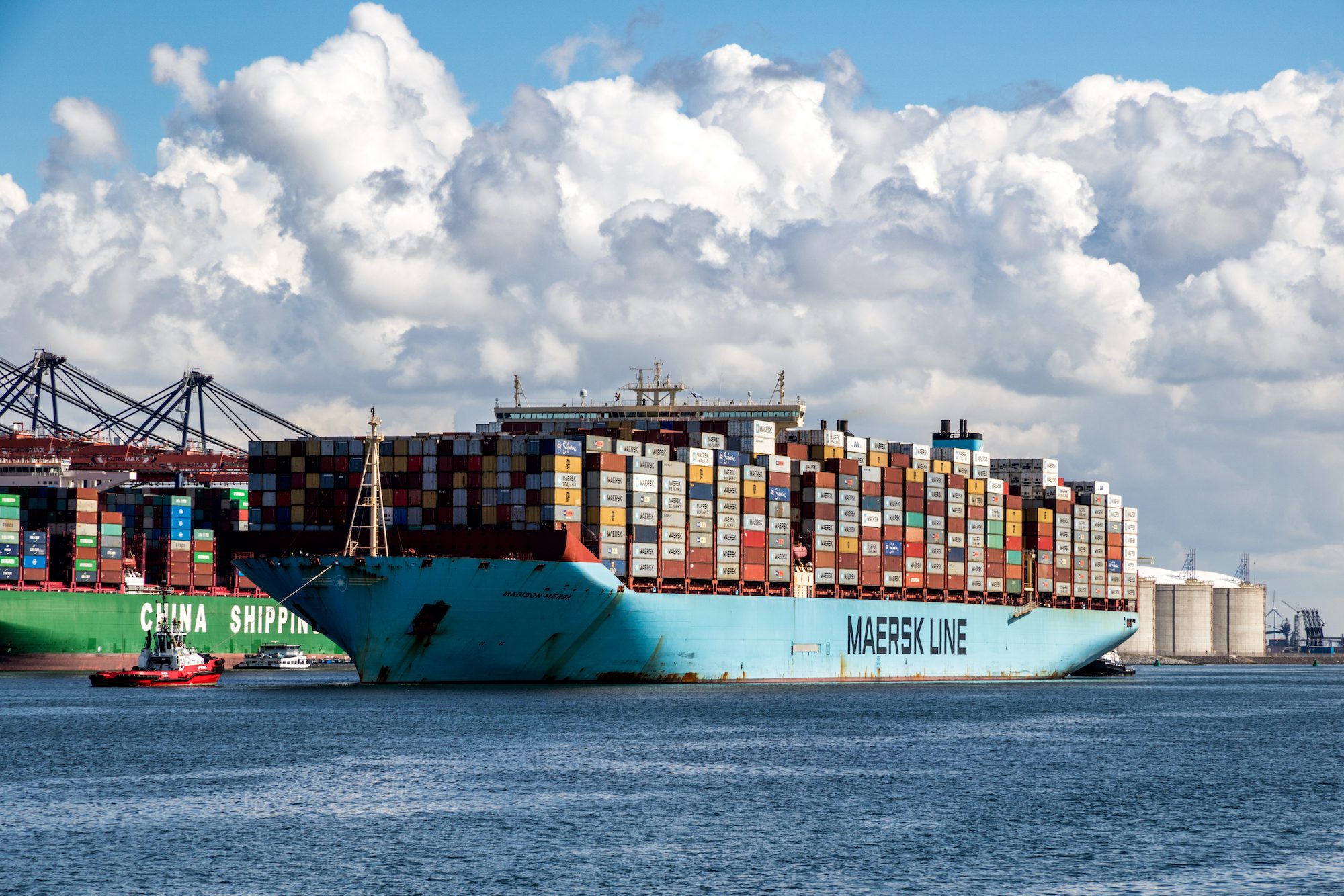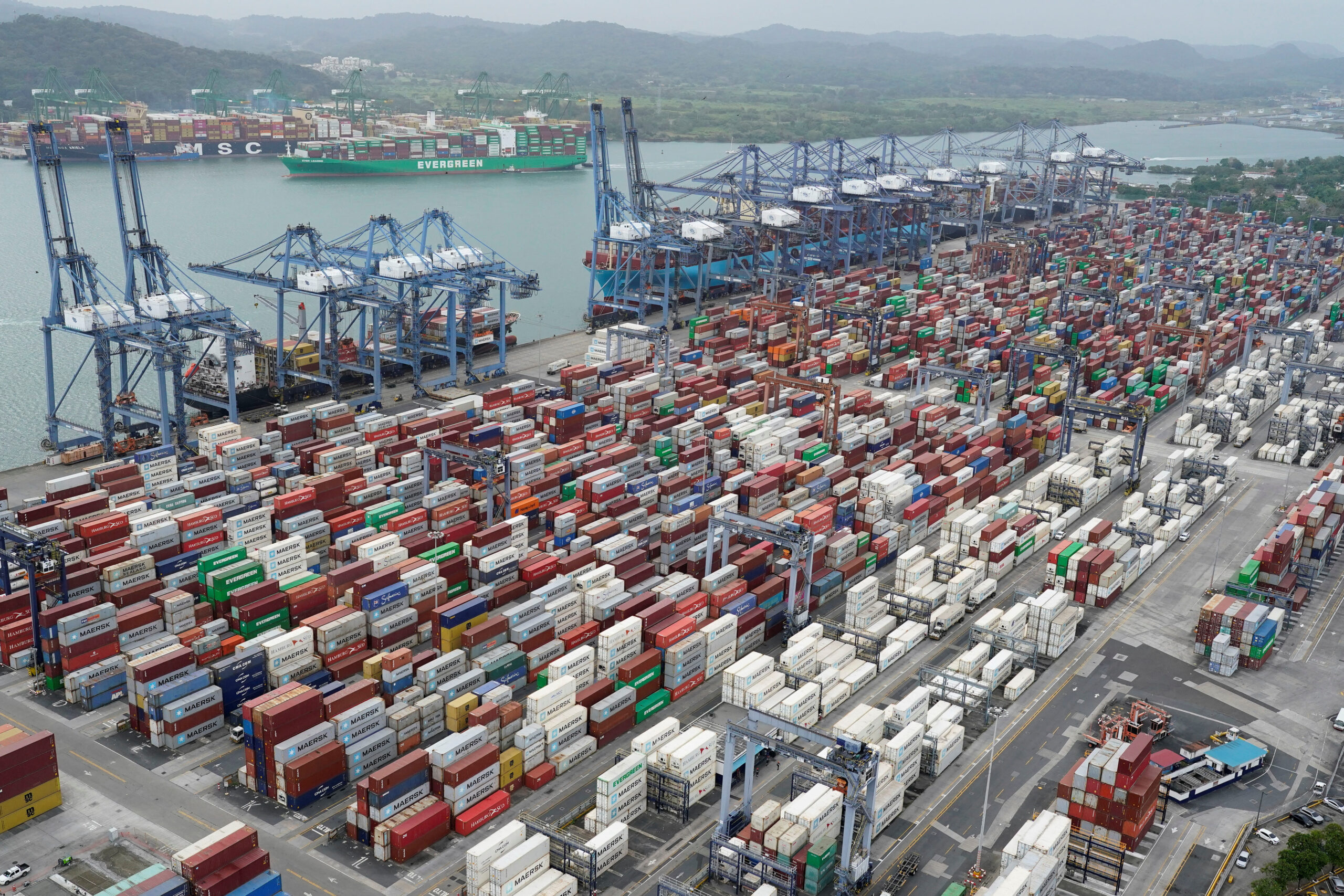Photo: Port of Long Beach
 By Steve Gorman
By Steve Gorman
LOS ANGELES, Feb 21 (Reuters) – A group of shipping companies and a powerful dockworkers union reached a tentative labor deal late on Friday after nine months of negotiations, settling a dispute that disrupted the flow of cargo through 29 U.S. West Coast ports and snarled trans-Pacific maritime trade with Asia.
The agreement, confirmed in a joint statement by the two sides, was reached three days after U.S. Labor Secretary Thomas Perez arrived in San Francisco to broker a deal with the help of a federal mediator who had joined the talks six weeks earlier.
The White House called the deal “a huge relief” for the economy, businesses and workers. President Barack Obama urged “the parties to work together to clear out the backlogs and congestion in the West Coast ports as they finalize their agreement,” the White House said in a statement.
The 20,000 dockworkers covered by the tentative five-year labor accord have been without a contract since July.
The dispute had reverberated throughout the U.S. economy, extending to agriculture, manufacturing, retail and transportation. Supply chain disruptions have hit from automakers to consumers of french-fried potatoes at McDonald’s Corp restaurants in Japan.
Wal-Mart Stores Inc, the world’s largest retailer, said on Thursday the dispute had caused delays of “pockets of merchandise” and that the potential cost had been included in the company’s earnings forecasts this week.
The deal was welcomed by groups such as the National Association of Manufacturers and the U.S. Meat Export Federation.
U.S. meat exporters have had to put millions of pounds of beef and pork into cold storage, ship by air or use Canadian or Mexican ports, rather than send it out through West Coast ports. Tyson Foods Inc and Cargill Inc are among the leading U.S. pork and beef producers.
Tensions arising from the talks have played out since last fall in chronic cargo backups that have increasingly slowed freight traffic at the ports. According to the American Association of Port Authorities, some $3.8 billion worth of goods move in and out of U.S. seaports each day.
The West Coast ports handle nearly half of all U.S. maritime trade and more than 70 percent of the country’s Asian imports.
Shipping companies have sharply curtailed operations at the marine terminals, suspending loading and unloading of cargo vessels for night shifts, holidays and weekends at the five busiest ports.
Perez said that as part of Friday’s accord, the International Longshore and Warehouse Union and the shippers’ bargaining agent, the Pacific Maritime Association, agreed to fully restore all port operations starting Saturday evening.
The deal is subject to ratification by the union rank-and-file and the individual shipping lines and terminal operators that make up the PMA. No details of the terms were immediately revealed.
Perez was sent to California on Tuesday as an emissary for Obama, who had come under mounting political pressure to intervene in a labor conflict that by some estimates could have ended up costing the U.S. economy billions of dollars.
‘TOO MANY…ARE SUFFERING’
Perez said he told the union and management negotiators: “You have an obligation to resolve this matter quickly because too many people and businesses are suffering.”
The principal sticking point when he first joined the talks, Perez told reporters after the agreement, was the arbitration system for resolving workplace disputes under the contract. He did not disclose how that impasse was overcome but said the parties agreed to changes that would improve the system while “ensuring fairness to both sides.
Perez, who had been joined at times during the week by U.S. Commerce Secretary Penny Pritzker and Los Angeles Mayor Eric Garcetti, exited the talks Friday morning after one last meeting with both sides. Announcement of an agreement came hours later.
Disruptions at the ports have been blamed by each side on the other as pressure tactics. Cargo loads have faced lag times of two weeks or more as dozens of inbound freighters stacked up at anchor along the coast, waiting for berths to open.
California farmers were especially hard hit, with port disruptions threatening perishable goods headed to overseas markets and export losses estimated to be running at hundreds of millions of dollars a week.
Japan’s Honda Motor Co said earlier this week it would slow production at some of its North American plants due to delays in parts shipments from Asia while Toyota Motor Corp said it had reduced overtime at some factories.
Nissan Motor Co Ltd said it had been somewhat affected. Honda and other car manufacturers said they were switching to higher-cost air freight to minimize delivery slowdowns.
Singapore-listed Neptune Orient Lines’ container shipping unit partly blamed the congestion for an 8 percent decline in its fourth quarter.
Port officials have said it would take six to eight weeks to clear the immediate backlog of cargo containers piled up on the docks and several months for freight traffic to return to a normal rhythm once the dispute was settled.
Besides work slowdowns the companies accused the union of staging to gain bargaining leverage and the curtailed operations the union said were designed to squeeze its members, the West Coast waterfront still faces a range of systemic problems cited by port authorities as factors in the backups.
Still, the settlement averted a worst-case scenario of the labor dispute devolving into a full-scale, extended shutdown of the ports, which the retail and manufacturing industries have projected could cost the U.S. economy some $2 billion a day. (Additional reporting by Ann Saphir and Sarah McBride in San Francisco and Dan Whitcomb in Los Angeles; Editing by Lisa Shumaker, Ken Wills, Bill Trott and Frances Kerry)
© 2015 Thomson Reuters. All rights reserved.

 Join The Club
Join The Club











